Fresh Fades and Line-ups: Black Men & Hair care
In the age of fluidity, understanding Black male hair care is still shackled by stereotypes, hyper masculine expectations and general ignorance. Our western world does not relate hair care to cisgendered, heterosexual men. This relation is more present as you move across the sexuality and gender spectrum towards more femme and women-presenting people. This in and of itself speaks to our regard for men in relation to their hair. This phenomenon is even more present when it comes to Black men.
Black and brown people have endured a long battle for the acceptance of our natural hair in professional and commercial places. We aren’t strangers to microaggressions and systemic prejudices that center our hair. This struggle does not exclude Black men. Masculine-presenting Black people are not allowed to love, respect, and explore with their hair like feminine-presenting Black people are. This stigma is rooted in the homophobia, toxic masculinity, and generations of conformity to the White standard.
We are seeing some changes on this front, but we have a long way to go. I was able to connect with two Black men on their relationship with their hair. It was an eye opening experience that marked the nuances of hair care within the Black masculine community, and how the world regards hair on Black male-presenting bodies.
Solomon G.W. Jr. identifies as a cisgendered Black American man. He is a New Jersey native in the field of finance.
Trajuan B. identifies as a cisgendered Black American man. He is a California native in the field of advocacy and education surrounding student athletes.
What’s your earliest memory of hair care?
Solomon
“My mom used to braid hair when we were broke. She used to braid mine when I was younger, but I would cry everytime. They probably got tired of that and started cutting it instead.”
Trajuan
“I used to have a high top fade with an “Obi-Wan Kenobi” tail in the back. Mane and Tail, Murray’s Hair Grease and Costyle were my go to products back then.
Back then, I associated my hair a lot with the reason why I didn’t feel accepted. I felt as though people wanted me to be different. I didn’t care though, I wore my hair how I wanted to, kind of as an act of rebellion.
I used to get into a lot of trouble as a kid, and as a result my mom ended up cutting my hair...coincidentally I started acting better. It was kind of like Sampson from the bible. I wasn’t allowed to grow my hair again until I was 13.”
Do you ever think about your hair in relation to any other identity?
Solomon
“No one has hair like mine unless they look like me. My hair is intertwined with my identity as a black person because of this.” He found the ability to discern kinship through hair as one of the highlights of the shared experience of natural blackhair. “Jesus’s hair is described as being similar to mine [so I know he looked like me racially].”
Are you approached differently depending on your hair state?
Trajuan
“Definitely, the type of attention I get depends on my hair length. When my hair is longer I get approached about my ethnicity alot because my hair texture is what many would call [the controversial label] good hair. I notice that in this state people fetishize my hair a lot. I’m constantly having to prove my blackness.”
Additionally...
Solomon
“I wished my hair was longer when I was younger because I wanted to do more with it. Versatility in hair is somewhat okay for guys, but it isn’t encouraged. I think this is because men are viewed as people who should be simple, not too complex and not too many layers. Women are the ones who are supposed to have all the different colors and styles which I think is BS.
Regardless, for now a good haircut makes me feel like a million bucks, or more so like I can get a million bucks. My confidence is through the roof after a fresh-cut.”
Trajuan
“If she can’t use your comb, don’t bring her home. I grew up hearing this phrase alot from my mother.She was wary of me dating interracially. I understood where my mom was coming from based on her background, but my mom is creole. I always thought it odd because that saying didn’t apply to her vary well [especially when thinking about her hair texture].
A lot of people will tell me I have good hair. It’s frustrating, but I’ve never put an identity or culture behind it. Oftentimes, I avoid asking my friends who are men anything about hair because they oftentimes are the ones letting the jokes and comments about my hair texture fly.
The sentiments expressed here aren’t restricted to Solomon and Trajuan. Many Black masculine-presenting people experience this complex and nuanced relationship daily. It is virtually not discussed on the same scale as Black feminine-presenting people’s experience with natural hair.
It is a relationship that is heavily influenced by societal norms, and rooted in negative and dangerous stereotypes. This relationship to hair is freeing and binding in that it reveals the world's disregard for you, but it also provides an avenue to truly embrace your hair for what it is.
Curl Cupid™ Hair Quiz
The Glimmer 411 team created the Curl Cupid™ Hair Quiz to make curly and coily hair care simpler for people like you.
Take the Hair Quiz today to receive a custom hair report with in-depth details on how to take better care of your curls!











![At Glimmer 411, our values are the heart of everything we do. Because YOU [our customers] are the top priority, we want to share them with you!
First up is ✨ INTEGRITY ✨ Swipe to find out more on how we plan to act on this value ➡️
—⠀
#G41](https://images.squarespace-cdn.com/content/v1/5c716cc590f9045c858a9fa6/1615484483997-5XKMEBQLCF4Q3TKP7KFI/image-asset.jpeg)